New York, 01 Ramadan 1437/06 June 2016 (MINA) – As the Israeli occupation of the West Bank and Gaza entered its 50th year, Human Rights Watch called today on the International Criminal Court (ICC) prosecutor to open a formal investigation into serious international crimes committed in Palestine by Israelis and Palestinians.
Given strong evidence that serious crimes have been committed in Palestine since 2014, including new population transfers into occupied territories, the ICC prosecutor, Fatou Bensouda, should undertake a formal probe consistent with the ICC’s Rome Statute, Human Rights Watch said.
An ICC investigation is needed given the grave nature of many of the violations and the pervasive climate of impunity for those crimes, Mi’raj Islamic News Agency (MINA) reported, quoting hrw.org.
Also Read: MER-C Volunteer Dr. Anthon Performs Oral Surgery at Gaza’s Baptist Hospital
“After nearly a half century of impunity, it’s time that those responsible for some of the gravest crimes, whether against Palestinians or Israelis, pay the price,” said Sarah Leah Whitson, Middle East director. “The ICC prosecutor should move forward and investigate the crimes by all parties so that the victims can obtain a measure of justice that has long eluded them.”
Human Rights Watch issued its statement on the 49th anniversary of the start of the June 1967 (or Six Day) War that resulted in the occupation of the Palestinian territories.
The ICC treaty officially went into effect for Palestine on April 1, 2015, giving the court jurisdiction over serious crimes in violation of international law, including war crimes and crimes against humanity committed on or from Palestinian territory. On January 1, 2015, the Palestinian government gave the court a mandate back to June 13, 2014, to cover the 2014 conflict in Gaza.
Based on her policy for responding to declarations accepting the court’s jurisdiction, Bensouda opened a preliminary examination into the situation in Palestine on January 16, 2015. During the preliminary examination phase, the prosecutor determines whether the criteria have been met to merit pursuing a formal investigation on the basis of information that is either publicly available or submitted to her office.
Also Read: Israeli Restrictions Still Blocking Aid to Gaza One Month Into Ceasefire
Human Rights Watch wrote to Bensouda in November 2015, to share materials from its own research that are relevant to her inquiry.
The prosecutor’s current preliminary inquiry includes analyzing whether crimes specified in the Rome Statute, the ICC’s founding document, have been committed; whether those crimes are sufficiently grave to merit the court’s attention; and whether national authorities are genuinely carrying out credible investigations and, if appropriate, prosecutions of the cases under ICC consideration, since the ICC is a court of last resort.
The prosecutor’s 2015 preliminary examinations report, issued on November 12, said that her office was assessing whether there was a reasonable basis to believe that ICC crimes have been or are being committed in or from Palestine.
During the 2014 hostilities in Gaza, Human Rights Watch, as well as a United Nations Commission of Inquiry and local and international human rights organizations, documented unlawful attacks by the Israeli military and Palestinian armed groups, including apparent war crimes. Fighting killed more than 1,500 civilians in the Gaza Strip, damaged hospitals and other civilian infrastructure, and destroyed the homes of more than 100,000 Palestinians.
Also Read: Israeli Knesset Passes First Reading of Bill Allowing Execution of Palestinian Prisoners
Palestinian armed groups launched rockets and fired mortars toward Israeli population centers, killing five civilians and causing thousands to temporarily leave their homes. Palestinian armed groups also endangered Palestinian civilians by firing from populated areas and hiding weapons in UN schools, according to UNRWA.
The UN Commission of Inquiry found substantial information suggesting that Israeli forces and Palestinian armed groups had committed serious violations of the laws of war and that such violations appeared to be part of policy decisions by the leadership on both sides.
The alleged crimes at issue are not limited to the 2014 Gaza fighting, Human Rights Watch said. The ICC statute also classifies as a war crime an occupying power’s transfer of its own civilians “directly or indirectly” into territory it occupies. The transfer of inhabitants of the occupied territory from their homes to other places within or outside this territory is also a war crime.
Recent Settlement Construction
Since it occupied the West Bank in 1967, Israel has actively facilitated the movement of its citizens into settlements there. Successive Israeli governments have enabled these transfers, even though settlements in occupied territories are unlawful under international humanitarian law and are integral to Israeli policies that dispossess, discriminate against, and violate the human rights of Palestinians, Human Rights Watch said. Israel’s Supreme Court, which has jurisdiction over the Israeli military’s activities in the West Bank, has declined to rule on the legality of transferring Israeli civilians into the West Bank, saying it is primarily a political issue.
Also Read: Israeli Prosecution to Confiscate 50 Ships Involved in the Global Sumud Flotilla
A January report by the UN secretary-general on Israeli settlements said that the “presence and continued development of Israeli settlements lie at the root of a broad spectrum of human rights violations in the West Bank, including East Jerusalem.” All of these policies have continued since June 13, 2014, including new transfers of thousands of Israeli citizens into the West Bank.
More than half a million Israeli settlers live in 237 settlements in the West Bank, including in East Jerusalem. In 2014, the population of Israeli settlers in the West Bank, not including East Jerusalem, grew by about 14,000, according to the Israeli Central Bureau of Statistics. Israeli demolitions of Palestinian homes and other buildings in the West Bank displaced 1,177 Palestinians in 2014, and 757 Palestinians in 2015, according to the UN Office for the Coordination of Humanitarian Affairs.
The United Kingdom, France, and the European Union have recently condemned Israel’s continued settlement activity as illegal under international law.
According to Israel’s Central Bureau of Statistics, in 2015, construction began on 1,913 new housing units in settlements in the West Bank, not including East Jerusalem, and workers completed construction of 2,033 housing units there, intended for Israeli settlers.
Also Read: WHO: 16,000 Patients in Gaza Awaiting Evacuation Abroad
In 2014, construction began on 1,516 new housing units in West Bank settlements, and workers completed construction of 1,615 units. The Bureau of Statistics does not aggregate construction data by month, and Human Rights Watch could not determine how much of the 2014 construction took place after June 13, the date when the ICC mandate begins.
In addition to the actual construction, in 2015, the Israeli government published tenders for 1,143 new housing units in Israeli settlements in the West Bank, including East Jerusalem, according to the Israeli nongovernmental group Peace Now. Also according to Peace Now, in 2015, the Israeli government approved regional building plans to accommodate thousands of additional settlers in the West Bank. (T/R07/R01)
Mi’raj Islamic News Agency (MINA)
Also Read: Two Civilians Martyred in Israeli Drone Attack in Southern Gaza









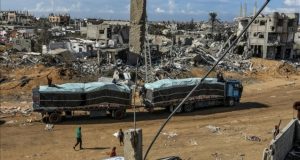



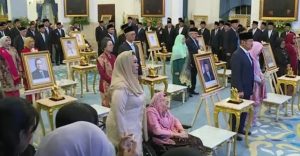

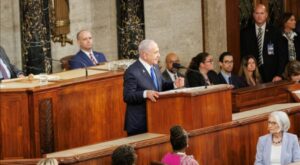

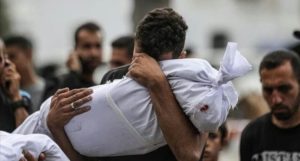

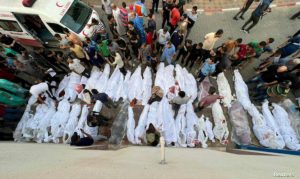






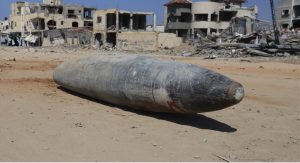
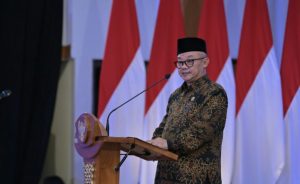
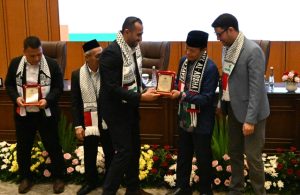

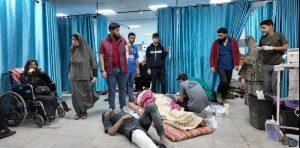




 Mina Indonesia
Mina Indonesia Mina Arabic
Mina Arabic